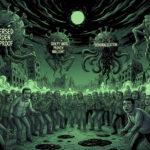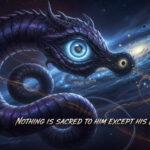
Discovering the real foundation that unites humanity without erasing distinctions. The modern spiritual marketplace is saturated with gurus and new age philosophers proclaiming that “we are all one,” yet they rarely offer a mechanism for this unity beyond vague sentimentality or pantheistic blurriness. This fluffy assertion dissolves under scrutiny because it ignores the fundamental architecture of reality. We are indeed connected, but this connection operates through one of two distinct […] Read more »













